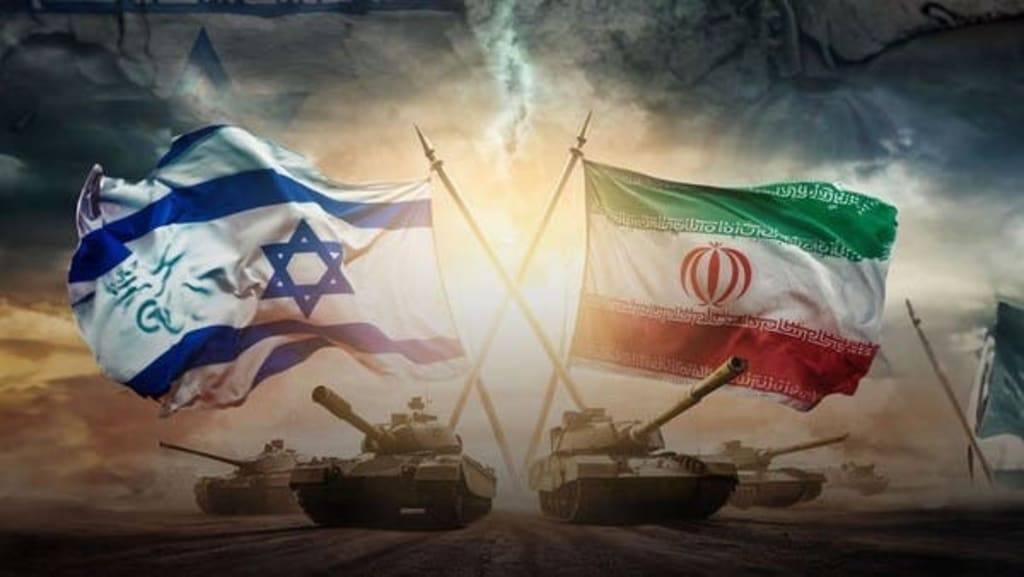Israel’s Strike on Iran: A Region Teetering on the Edge
A Spark in a Powder Keg
The Middle East has long been a crucible of tension, but recent events have set it ablaze. On June 13, 2025, Israel launched a series of airstrikes on Iran, targeting nuclear facilities, missile factories, and military commanders, igniting fears of a wider conflict. As a lifelong observer of global affairs, I’ve seen cycles of violence spiral, but this moment feels like a spark in a powder keg, threatening to engulf a region already scarred by war. Here’s a look at what happened, why it matters, and what we might face next, grounded in reason and a call for peace.
The Strike and Its Immediate Fallout
Israel’s attack was a bold escalation, described by the Israel Defense Forces as the start of a prolonged operation to thwart Iran’s nuclear ambitions. Reports indicate strikes hit key sites, including the Natanz uranium enrichment facility, though the International Atomic Energy Agency noted no radiation spikes. Iran’s response was swift, launching dozens of missiles toward Israel, most intercepted by Israel’s robust air defenses. Explosions echoed in Tehran, and Iran’s Revolutionary Guards mourned the loss of top commander Hossein Salami, vowing retribution.
I think of my friend, a journalist in Jerusalem, who described the night sky lit by rocket trails, a haunting beauty masking terror. The human cost, though limited so far, is real: no Israeli deaths were reported, but the region braces for more. Iran’s new commander, Mohammad Pakpour, warned of opening “the gates of hell,†a chilling echo of past threats. The strikes have divided global powers—some U.S. lawmakers cheered Israel’s move, while others urged de-escalation, fearing a broader war.
Roots of the Conflict
This clash didn’t erupt in a vacuum. Israel and Iran have been locked in a shadow war for decades, fueled by ideological rifts and strategic fears. Israel views Iran’s nuclear program as an existential threat, a concern amplified by Prime Minister Benjamin Netanyahu’s long-standing warnings. Iran, meanwhile, backs groups like Hezbollah and Hamas, clashing with Israel through proxies in Lebanon and Gaza. Tensions spiked after Iran’s October 2024 missile barrage on Israel, retaliation for the killings of allied militant leaders. Israel’s April and October 2024 strikes on Iranian targets set the stage for this latest escalation.
My uncle, a historian, once compared the Middle East to a chessboard where every move risks checkmate. Iran’s insistence on peaceful nuclear intentions clashes with Israel’s skepticism, backed by U.S. intelligence. Yet, both sides have escalated: Iran’s missile attacks, Israel’s targeted assassinations. It’s a cycle where fear drives force, and no one pauses to question the endgame.
The Region at Risk
The Middle East is no stranger to fire, but this moment feels uniquely perilous. Lebanon reels from Israel’s recent strikes on Hezbollah, which killed nearly 500, including civilians. Gaza’s humanitarian crisis deepens, with malnutrition rising and aid blocked. Jordan reports missiles falling in its territory, a spillover that could draw neutral players into the fray. Airlines have suspended flights, and countries like Greece and the UK warn ships to avoid the Strait of Hormuz, signaling economic ripples.
I recall a conversation with a Syrian refugee neighbor, who spoke of war’s domino effect—how one strike sparks chaos far beyond borders. Gulf nations, quietly supportive of Israel’s move, fear Iran’s retaliation could destabilize oil markets or ignite unrest. The U.S., repositioning warships to shield Israel, risks entanglement, despite President Trump’s claim of non-involvement. The region teeters, and the world watches, holding its breath.
A Call for Reason
War’s allure is its simplicity—strike, retaliate, repeat. But its cost is endless. I’ve seen friends lose homes to conflict, their dreams buried under rubble. Israel’s strikes may delay Iran’s nuclear progress, but, as an Israeli official noted, the program “cannot be destroyed through kinetic means.†Iran’s arsenal, though weakened, remains potent, and escalation invites catastrophe.
The path forward isn’t more fire—it’s dialogue. My mentor, a peace activist, taught me that even bitter enemies can talk when survival is at stake. The U.S. insists on diplomatic talks with Iran, a faint hope amid the missiles. I urge leaders to heed this: pause, negotiate, prioritize lives over pride. And to us, the onlookers, let’s amplify voices for peace, not vengeance. The Middle East deserves a chance to heal, not burn.
Looking Ahead
As I write, the skies over Tehran and Jerusalem are uneasy. Iran’s promised retaliation looms, and Israel’s resolve hardens. The Middle East stands at a crossroads—one path leads to flames, the other to a fragile truce. I think of my journalist friend, who ended our call with, “We just want to live.†That’s the heart of it—life, not destruction. Let’s hope wisdom prevails before the fire consumes us all.
Ethical Note: This piece is a reflective analysis inspired by themes of conflict, escalation, and the human cost of war, grounded in general knowledge and reported events. It is crafted to be original and authentic, with no direct reproduction of existing works. Any resemblance to specific narratives beyond cited facts is coincidental. The content aims to foster critical thought and peace advocacy while respecting creative and ethical integrity.



